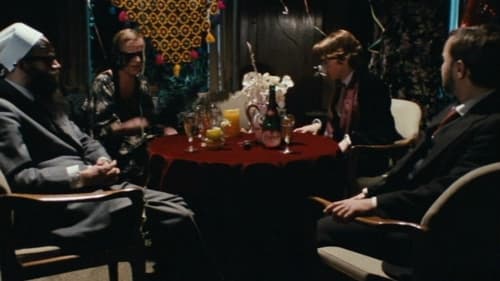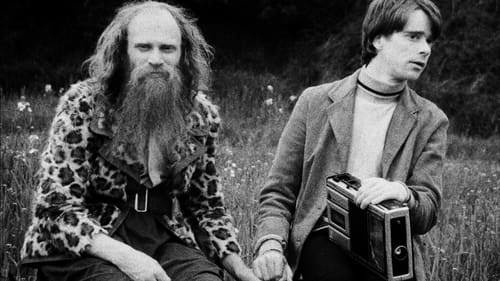
Schwester Anna
Mutters Maske aka Mother's Mask is a free adaptation of the film Opfergang (1944) aka The Great Sacrifice of Veit Harlan. Schlingensief exposes his source material's dangerous proximity to kitsch and camp by reducing the genre conventions known from Harlan, Sirk, Fassbinder & Co to the level of a daily soap: set within a noble family from the German Ruhr, Schlingensief's story revolving about Willy von Mühlenbeck's tragic love to terminally ill neighbor girl Äls (Susanne Bredehöft) and the inheritance intrigues by his evil brother Martin von Mühlenbeck (Helge Schneider) creaks with melodramatic devices and self-conscious dialogues. Rather than being a mere spoof, "Mother's Mask" is perhaps Schlingensief's purest black comedy.

Costume Design
Egomania is a visually stunning end-of-the-world melodrama about lust, jealousy and murder set amidst solar eclipses, orchestral chants and the distant thunder of the boiling sea. The film’s characters – riddled with unconscious desires – find themselves imprisoned on an island. Drawing parallels to the work of British filmmaker Derek Jarman and staring Jarman’s actress-muse Tilda Swinton, Schlingensief’s raw and almost mythological film stands in contrast to his more offensive efforts.

Ria
Egomania is a visually stunning end-of-the-world melodrama about lust, jealousy and murder set amidst solar eclipses, orchestral chants and the distant thunder of the boiling sea. The film’s characters – riddled with unconscious desires – find themselves imprisoned on an island. Drawing parallels to the work of British filmmaker Derek Jarman and staring Jarman’s actress-muse Tilda Swinton, Schlingensief’s raw and almost mythological film stands in contrast to his more offensive efforts.

A traumatized young man, abused by his father, imagines himself as Adolf Hitler when dreaming of revenge. Schlingensief released this film, which follows no linear narrative structure, at a moment when right-leaning German intellectuals argued for a coming to terms of the country’s relation with its Nazi past. Schlingensief disagreed. (MoMA)

Ireen Fitzler
An early declaration of war on narrative cinema, using a barrage of visual and acoustic elements while at the same time juggling ironically - as he still does - with the term 'avant-garde'. A number of other preferences and obsessions were evident at an early stage, e.g. the mind-numbing habit of having his people stumbling and screaming around: life as a race track. His films likewise feature a lot of theatrical and cryptic outpourings. No wonder that they failed at the box office. No wonder either, however, that Schlingensief was attracted to theatre.




